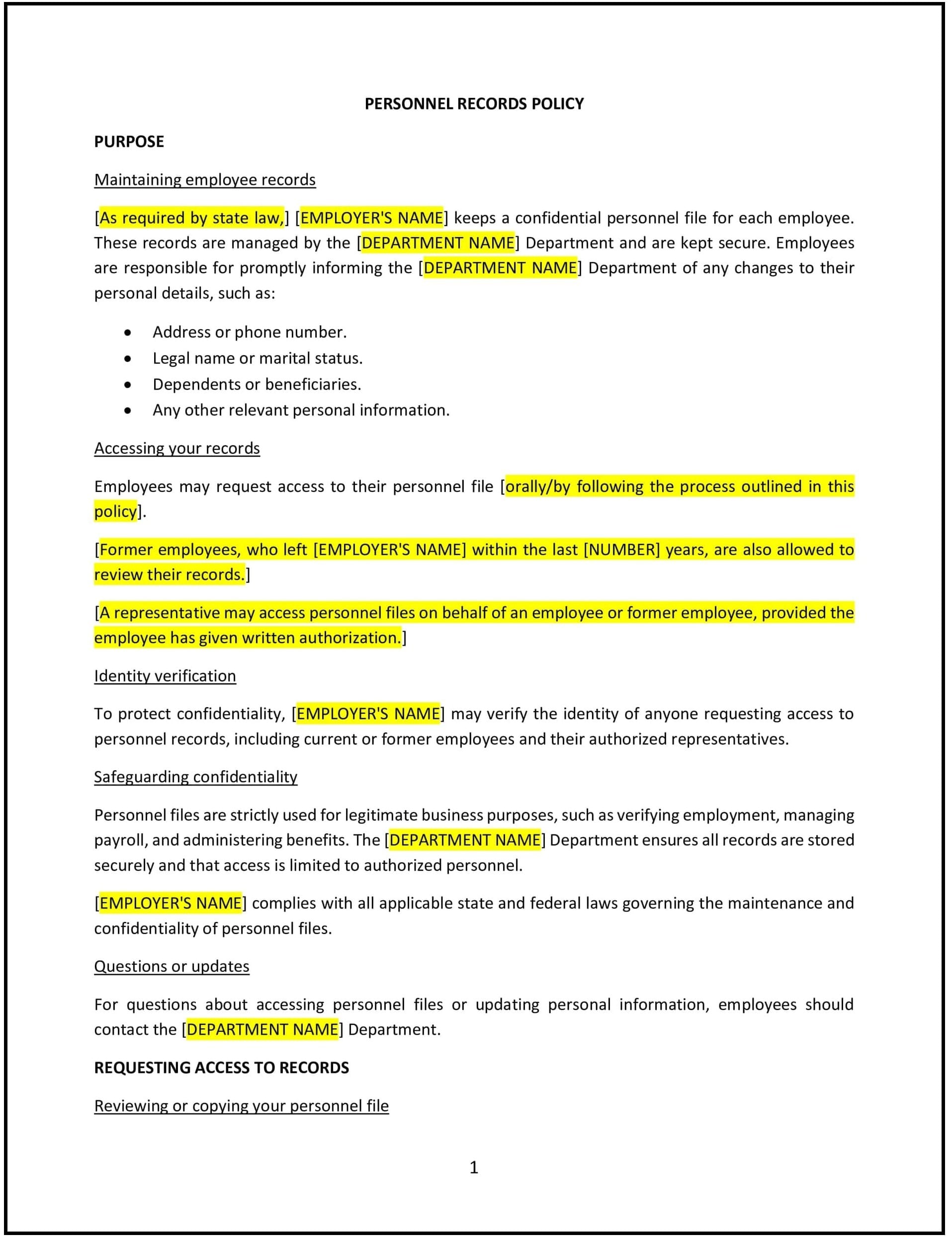Got contracts to review? While you're here for policies, let Cobrief make contract review effortless—start your free review now.

Customize this template for free
Personnel records policy (Colorado)
A personnel records policy helps Colorado businesses establish clear guidelines for maintaining, accessing, and managing employee records in compliance with state and federal regulations. This policy defines how records are stored, what information is included, and the procedures for employee access and updates.
By implementing this policy, businesses can protect sensitive information, support compliance with Colorado employment laws, and promote transparency in recordkeeping.
How to use this personnel records policy (Colorado)
- Define record contents: Clearly specify the types of documents included in personnel records, such as employment contracts, performance reviews, and disciplinary actions.
- Establish storage procedures: Outline how records will be securely stored, including physical and electronic storage methods.
- Set access guidelines: Provide details on who can access personnel records, ensuring compliance with Colorado laws that allow employees to review their own records.
- Document retention: Include timelines for retaining and securely disposing of personnel records in accordance with legal requirements.
- Support compliance: Align recordkeeping practices with Colorado and federal laws, such as privacy protections and anti-discrimination regulations.
Benefits of using this personnel records policy (Colorado)
This policy offers several benefits for Colorado businesses:
- Supports compliance: Aligns with Colorado requirements for employee access to personnel records and record retention.
- Protects sensitive information: Ensures secure storage and restricted access to employee records, reducing the risk of data breaches.
- Promotes transparency: Provides employees with clear guidelines on how their records are maintained and accessed.
- Simplifies audits: Establishes a structured approach to recordkeeping, making compliance audits more efficient.
- Reduces disputes: Clarifies recordkeeping processes, minimizing misunderstandings or conflicts related to personnel files.
Tips for using this personnel records policy (Colorado)
- Train HR staff: Ensure HR personnel understand the policy and their responsibilities for maintaining accurate and secure records.
- Conduct periodic audits: Regularly review personnel files to ensure accuracy and compliance with Colorado laws.
- Maintain confidentiality: Implement strict protocols for accessing and sharing personnel records to protect employee privacy.
- Provide employee access: Allow employees to review their records as required by Colorado law, ensuring the process is clear and consistent.
- Keep policies updated: Regularly update the policy to reflect changes in Colorado laws or business practices.